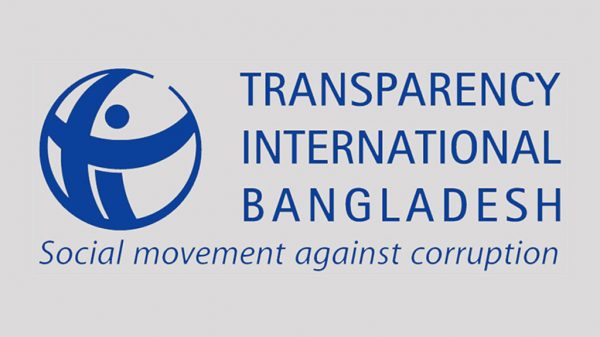Candidates’ affidavits, tax returns mismatch

Anti-graft watchdog Transparency International Bangladesh found a mismatch between the affidavits and income tax returns of many wealthy candidates for the third phase of the upazila parishad election slated for May 29.
A number of candidates’ affidavits, submitted to the Election Commission, also showed a poor amount of movable and immovable wealth.
TIB on Monday revealed its findings at a press conference at its office in Dhaka.
According to the findings, Md Zahadul Haque, a chairman candidate from Boalkhali in Chattogram, showed his movable and immovable wealth worth Tk 116 crore in his income tax return, but he showed his wealth worth only Tk 37.70 crore in his affidavit.
Abu Asif Ahmed, chairman candidate from Ashuganj in Brahmanbaria, shows his wealth worth Tk 85.06 crore in his income tax return but only Tk 46 lakh in his affidavit.
Abu Bakar Siddique, chairman candidate from Sirajdikhan in Munshiganj, shows his wealth worth Tk 25.88 crore in his income tax return but only Tk 10.91 crore in his affidavit.
Md Shahed Shahriar, chairman candidate from Begumganj in Noakhali, shows wealth worth Tk 20.58 crore in tax return but Tk 16.27 crore in the affidavit.
Md. Didarul Alam, a chairman candidate from Patiya in Chattogram, shows wealth worth Tk 17.16 crore in tax return but Tk 14 crore in the affidavit.
Haji Mohammad Harunur Rashid, another chairman candidate from Patiya, shows wealth worth Tk 15.90 crore, but Tk 12.50 in his affidavit.
TIB also found that Ferdousi Islam, a chairman candidate from Shibpur in Narsingdi, shows wealth worth Tk 41.04 crore in her income tax return, but Tk 188.73 crore in the affidavit.
Another chairman candidate, Md Rabbani Jabbar from Khaliajuri in Netrakona, shows his wealth worth Tk 22.93 crore in his tax return, but Tk 25.12 crore in his affidavit.
TIB executive director Ifekharuzzaman said it was imperative for the NBR, Election Commission, and Anti-Corruption Commission to proactively verify the legitimacy of the information provided in candidates› affidavits and ensure that their reported incomes and assets were consistent with legal sources.
‘However, these regulatory bodies seem indifferent to these duties. We urge the authorities concerned to rigorously investigate the findings of our analysis,’ he added.
He noted that 37 per cent of candidates claimed they had no taxable income in their affidavits, terming it ‘unbelievable.’
Many disclosed their income but obscured its sources, said Ifekharuzzaman.
TIB, in its analysis, found that the income and wealth of public representatives participating in the third phase also increased manifolds like the candidates in previous phases.
Tenure in the office is associated with a rapid increase in income and wealth, observed TIB. It also said there is unhealthy competition among candidates aspiring for public office, who view it as an opportunity to amass income and assets.
TIB found that the income of 74 candidates in the third phase polls increased by more than 100 per cent in five years, and the maximum income of chairman candidate Nurul Alam from Teknaf in Cox’s Bazar increased by 10,422 per cent.
The immovable assets of 85 candidates increased by more than 100 per cent in the third phase, with the maximum increase of chairman candidate Mahmudul Hasan from Delduar in Tangail by 9,850 per cent in five years.
The immovable assets of Rafiqul Islam Talukder, a vice-chairman candidate from Agailjhara in Barishal, increased by 18,793 per cent in 10 years.
The income of the dependants of the candidates also increased, as Langadu chairman candidate Abdul Barek Sarker’s dependants’ income increased up to 5,400 per cent,
According to TIB findings, incumbent public representatives experienced a marked increase in income and assets over the past five years compared to new candidates.
This pattern suggests a direct correlation between holding political office and wealth accumulation, it said.
A significant disparity is seen in income and wealth growth between previously elected officials and non-elected candidates, it said.
Over the past decade, the income of previously elected local representatives has increased by 681.37 per cent, and movable assets by 1010.12 per cent.
In contrast, non-elected candidates have seen income grow by only 71.71 per cent and assets by 31.35 per cent.
This indicates a rapid accumulation of wealth and income associated with holding power.
TIB found that business candidates continue to dominate the third phase of the election, similar to the national election and the first two phases of the polls.
Businesspeople candidates make up 58.14 per cent of the total candidates, including 66.53 per cent of chairman candidates, 68.99 per cent of vice-chairman candidates, and 31.56 per cent of female vice-chairman candidates.
‘It is natural for business people, like any other professionals, to enter politics,’ Ifekharuzzaman said.
‘But the current situation suggests that the profit-oriented goal is driving businessmen’s interest in politics, leading to family-oriented power-grabs at the local level.’
A total of 106 candidates in the third phase have assets exceeding Tk 1 crore, and the number was 116 in both the second and third phases.
In the third phase, 16 per cent of candidates are currently accused in various cases, while 21.63 per cent had past accusations.
The charges include assault, breach of public peace, intimidation, harassment, abuse of women and children, and fraud.
According to the law, citizens can own a maximum of 100 bighas, or 33 acres of land, but six candidates were found to possess land exceeding this limit in the third phase polls.
Elections were scheduled to be held in 112 upazilas in the third phase on May 29. The Election Commission, however, suspended elections in 19 upazilas for the third phase on Monday due to Cyclone Remal.























Leave a Reply